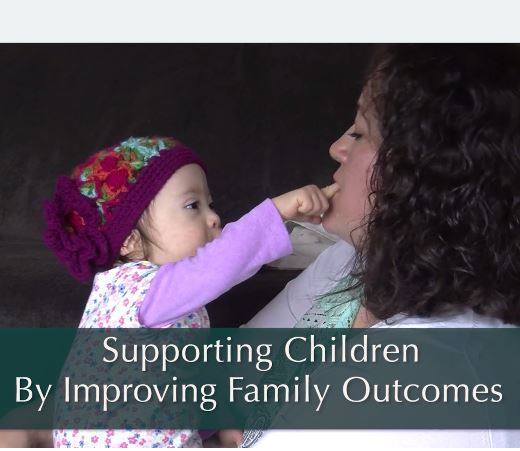All programs that serve young children and their families can improve outcomes for children by making a difference for their families. This video describes the importance of supporting families, collecting data on family outcomes, and using the data to improve the program. Using the family data collected by the U.S. Department of Education’s Office of Special Education’s Part C/Early Intervention Program as an example, this video highlights how three families who received early intervention benefited from support to their family. This video is a companion to the video Child Outcomes: Step-By-Step Videos.
The intended audience for this video is program staff, leaders, and families in all programs for young children, including early care and education, early childhood special education, early intervention, child care, and Head Start.
Press the [cc] button on the video player to enable English or Spanish closed captions.
Video: Supporting Children by Improving Family Outcomes Video (13 min., MP4 format)
PLEASE NOTE:
You are free to share, copy, link, and otherwise distribute this video under the following conditions:
- You must attribute the work in the following manner (but not in any way that suggests that the publishers endorse your use of the work):
Edelman, L. (Producer) (2017). Supporting Children by Improving Family Outcomes (Video). Published collaboratively by the Center for IDEA Early Childhood Data Systems (DaSy); the Early Childhood Technical Assistance Center (ECTA); the Desired Results Access Project, Napa County Office of Education, funded by the California Department of Education, Special Education Division; and collaborating partners. - You may not use this work for commercial purposes.
- You may not alter, transform, or build upon this work.
- You may not post a copy of this video to any website.
This video is published collaboratively by the Center for IDEA Early Childhood Data Systems (DaSy); the Early Childhood Technical Assistance Center (ECTA); and the Desired Results Access Project, Napa County Office of Education, funded by the California Department of Education, Special Education Division; and collaborating partners: Early ACCESS, Iowa Department of Education; LEAP Preschool Model, Positive Early Learning Experiences Center; Pyramid Model Consortium; New Mexico Children, Youth and Families Department Office of Child Development; UNM Continuing Education Early Childhood Services Center; Developmental TIPS Project, Munroe-Meyer Institute at the University of Nebraska Medical Center; and the Ohio Developmental Disabilities Council.


